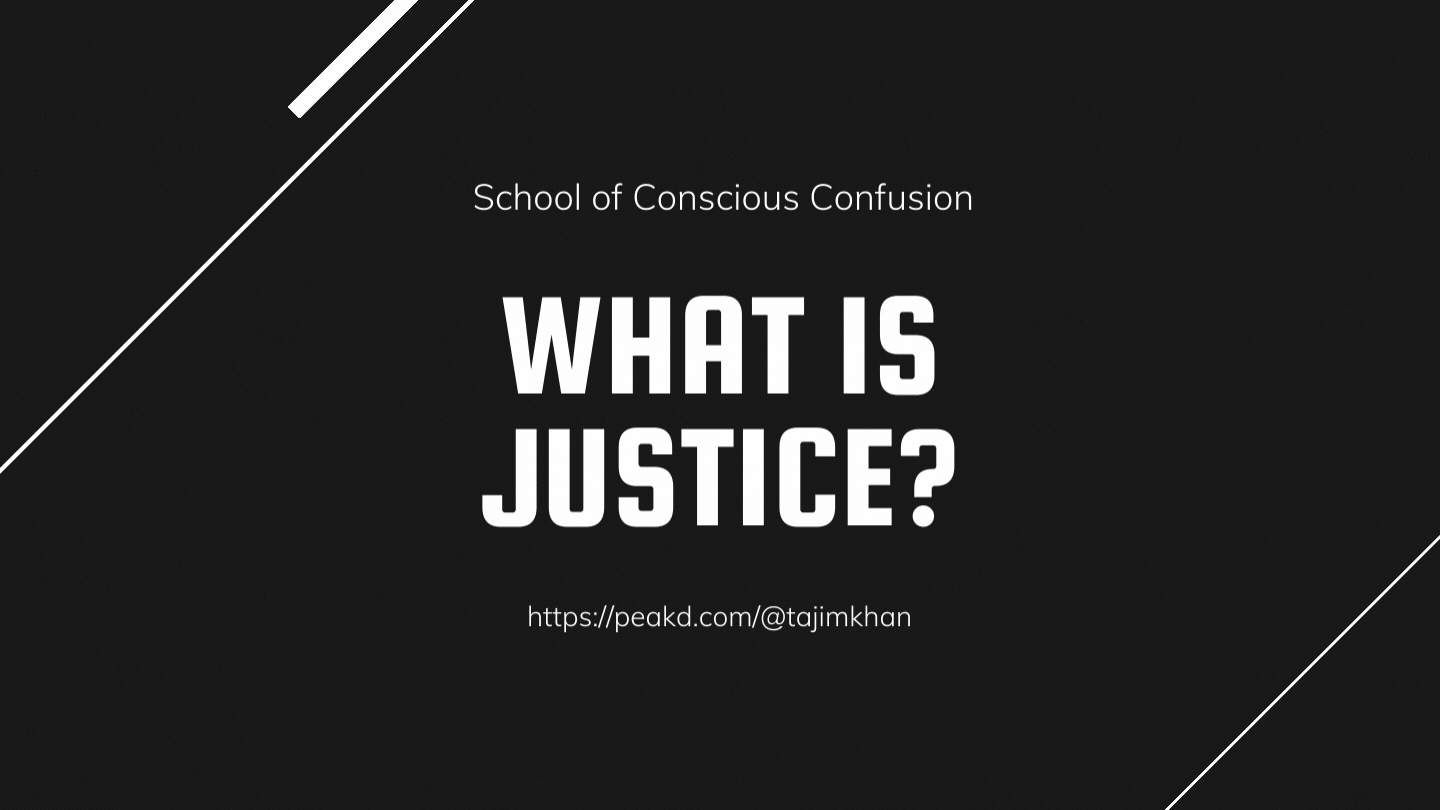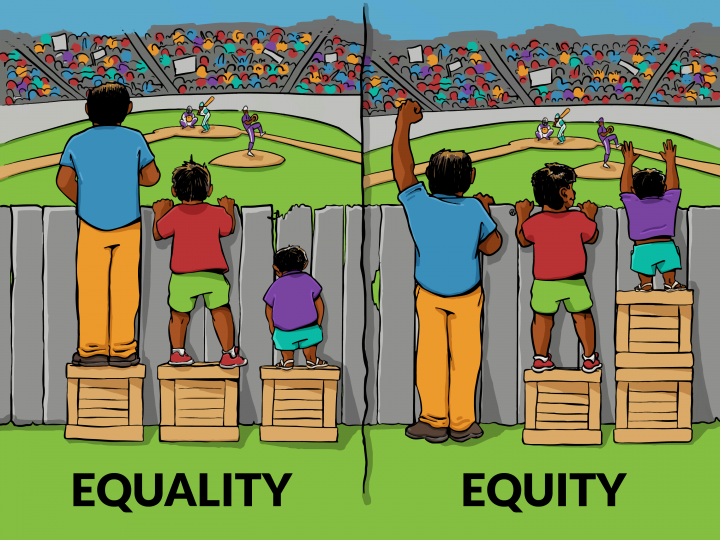What is Justice? — School of Conscious Confusion
What is justice? The concept of justice is very vague. Everyone has an opinion on what justice means and how it should be applied, but no one can truly say that they know the actual answer. The idea of justice has been around and defined for hundreds (if not thousands) of years. There are countless examples and interpretations to explain this concept, but there is never a definitive response without another argument or opposing definition.

Justice is also attributed as "fairness", where everyone's needs and wants are met equally; where everything is split fairly between parties involved. Justice can either be objective or subjective depending on who you ask because there are often multiple results to the same situation depending on how many perspectives are being examined.
Let's give two examples, and relate these examples with equality-equity and morality-immorality.
For example, let's look at three different people looking at a baseball match behind a fence.
Three of them are of different heights. Person A is 5 feet tall, Person B is 6 feet tall, and Person C is 7 feet tall.
All of them stand at different heights/viewpoints from the ball game; thus because Person A can watch the game with ease standing on his feet. Person B would require a box to stand upon to enjoy the game. Whereas, Person C would need 2 boxes to watch the game from behind the fence.

It would seem that, in this case, justice could be subjective or objective depending on who you ask because if we asked for example person A then they might want everyone to see equally making justice an objective matter (equality) but if we ask any of person B or C then it might be said that what they are seeing isn't actually equal.
Now let's come to an example of morality and immorality. In Arab or Afghan justice is somewhat different. They believe/believed in theories like an eye for an eye, blood money. It is like that anyone from your clan was murdered. You either come to a mutual understanding accepting compensation for an amount of blood money, or you claim an eye for an eye. Where the wrongdoer or someone from that clan would also be killed.
Or in case of thievery, the thief's hand should be cut down from his wrist. At the time before the law was introduced, it might have been okay for them to do this because for example a crime or wrongdoing would be dealt with wrong or a punishment fitting the crime. But since modernity and an introduction of a set of laws where each has his rights, what used to be justice in Arab countries is nothing but barbarism and immorality.
But, let's think from the perspective of a father, whose son has been killed. He might not feel that mere compensation is enough to compensate for his loss and grief. Or even if we imprison the wrongdoer/murderer. He might think it is only fitting that the murderer dies for murdering his son. For the victim's family, the concept of "eye for an eye" might be appropriate.
We can say that "justice" can indeed be subjective or objective depending on who you ask."
Amartya Sen, in his famous book THE IDEA OF JUSTICE, says justice is a very vague and unambiguous concept. He believes we cannot ensure justice. Rather all we can do is trying to ensure fairness. We may try to irradicate crimes or unjust things from society. This way we may come closer to justice.
But if society is completely fair, nobody will feel the need to call his acts or situation just or unjust.
Justice is quite an ambiguous term. Everyone has his own idea of justice. This leads one to ask which version should be imposed on people at large? Sen says, "It does not seem sensible to think that any person's idea about what constitutes justice could ever be adequate by itself." He calls this problem epistemic injustice. The best way out of this would be deliberation between people who have different ideas of justice and try to form a consensus. Even though there are problems with subjective definitions of justice, they can also lead us in the right direction according to Amartya Sen.
There is no norm or no standard when it comes to justice. It is, always have been, and will be a vague concept. Let me know what you think about justice.
This concept always made me wonder. Yes, it's vague coz we can't do equal no matter what.
But still we have to rely on our own+ governmental justice.